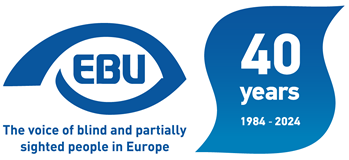Eye Association Netherlands is involved in three research programmes. The UitZicht programme aims at medical research and is funded by patients and related organizations. The InZicht programme, funded by Royal Dutch Visio and Bartiméus. Grants fundamental and applied scientific research projects aiming at the improvement of the rehabilitation and the social participation of visually impaired persons. The Programme Council, funded by the Ministry of Health, Welfare and Sports, is about research projects to improve existing rehabilitation methods and aims at the development of new methods to be used by the service providers (Royal Dutch Visio, Bartiméus and the Robert Coppes Foundation). The InZicht and the Council projects have to be carried out by the service providers in cooperation with an academic centre to guarantee scientific standards. The involvement of the service providers guarantees the implementation of the outcomes of the projects in practice. Representatives of Eye Association Netherlands are involved in all three programmes to give advice about the relevance of project proposals from the point of view of the visually impaired or of the patients in case of UitZicht.
To get more insight into the relevance of research projects from the point of view of the visually impaired, Eye Association Netherlands has, in cooperation with the Macula Association, charged the Athena Institute of the Free University Amsterdam to carry out a survey. More than 1,000 persons answered the questionnaire to give their priorities in the field of medical research as well in the field of social participation and rehabilitation. In case of medical matters priority is given to stem cell therapy, gene therapy, replacement or repair of the retina, influence of diet and lifestyle, genetic research, improvement of eye measurement, course and progression of eye conditions, the influence of an early diagnosis, prevention of serious complications in eye surgery.
In the social field the following matters are prioritized: making common technologies accessible (including ict), access to product information on packaging, accessibility of printed and written text, accessibility of the labour market, accessibility of the public domain (including GPS technology).
The results will be used by the representatives in their advisory tasks within the three programmes mentioned before. Furthermore they will be used to influence the prioritizing process within other research programmes e.g. carried out by knowledge centres.
For this Eye Association Netherlands intends to set up a network of relevant researchers and decision makers. Recently Mrs. Anne Boeter, MSC has been appointed to strengthen the position of Eye Association Netherlands in the research arena to secure that the voice of all persons with an eye condition is seriously taken into account.

